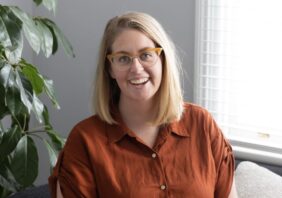Skip to:
Fertility is a complex process influenced by numerous factors, the most significant being age. As people age, especially women, their reproductive health changes, and fertility can decline. Understanding the effects of age on fertility can empower individuals and couples to make informed decisions about family planning, and that’s where fertility experts like Dr Rachael Knight can offer vital support.

Fertility begins to decline gradually with age, but the most significant changes often occur in a woman’s 30s and 40s. For women, the primary factor behind this decline is the quantity and quality of eggs. Women are born with all the eggs they will ever have, and as they age, both the number and the quality of these eggs decrease. After the age of 35, the rate of egg loss accelerates, and the remaining eggs tend to be of lower quality. This reduction in egg quality increases the likelihood of chromosomal abnormalities, which can make it more challenging to conceive and increase the chance of miscarriage.
For men, fertility also declines with age, though the effect is often less pronounced. Sperm quality—measured by motility (movement), morphology (shape), and concentration—can decrease as men age, particularly after the age of 45. Older men may also experience a lower sperm count or changes in hormone levels, which can impact their ability to father a child and have children with an increased risk of chromosomal diseases.
In addition to egg and sperm quality, other factors related to age can affect fertility, including hormone levels, uterine health, and the presence of conditions like polycystic ovary syndrome (PCOS) or endometriosis, which may become more apparent as individuals age.
For women under 35, it is generally advised to seek help if they have been trying to conceive for a year without success. However, for women over 35, it is recommended to seek assistance after six months of trying, as fertility declines more rapidly after this age. Age is also an important factor for men, as sperm health can deteriorate over time, though it may take longer for this to affect fertility.
It’s important to note that age-related fertility decline is not always predictable, and many people in their late 30s or early 40s can still conceive naturally or with fertility treatments. However, the chances of success with assisted reproductive technologies (ART), such as in vitro fertilization (IVF), are often higher when treatment starts earlier rather than later. It is important to note that IVF has no guarantees. Dr Rachael Knight encourages women and couples to not delay seeking assistance.
Dr Rachael Knight specializes in helping individuals and couples navigate the challenges of fertility, particularly where age is a concern. Her experienced team offers a range of services designed to increase the chances of conception, including:
Age is an important factor when it comes to fertility, but it’s not an insurmountable barrier. With advancements in reproductive medicine, individuals facing age-related fertility challenges now have more options than ever before. Dr Rachael Knight and her team provide expert care and a range of fertility treatments to help individuals achieve their family-building goals. Whether you’re looking to preserve your fertility for the future or seeking assistance to conceive now, the clinic offers personalized solutions that are tailored to your unique needs.
If you’re concerned about how age may be affecting your fertility, reaching out to Dr Rachael Knight’s team could be the first step toward achieving your dream of starting or growing your family.
These sources offer reliable, research-backed information on the impact of age on fertility, helping to support the claims made in the article. They also provide useful context for understanding the advanced fertility treatments available, like IVF and egg freezing, that can help individuals and couples facing age-related fertility challenges.
